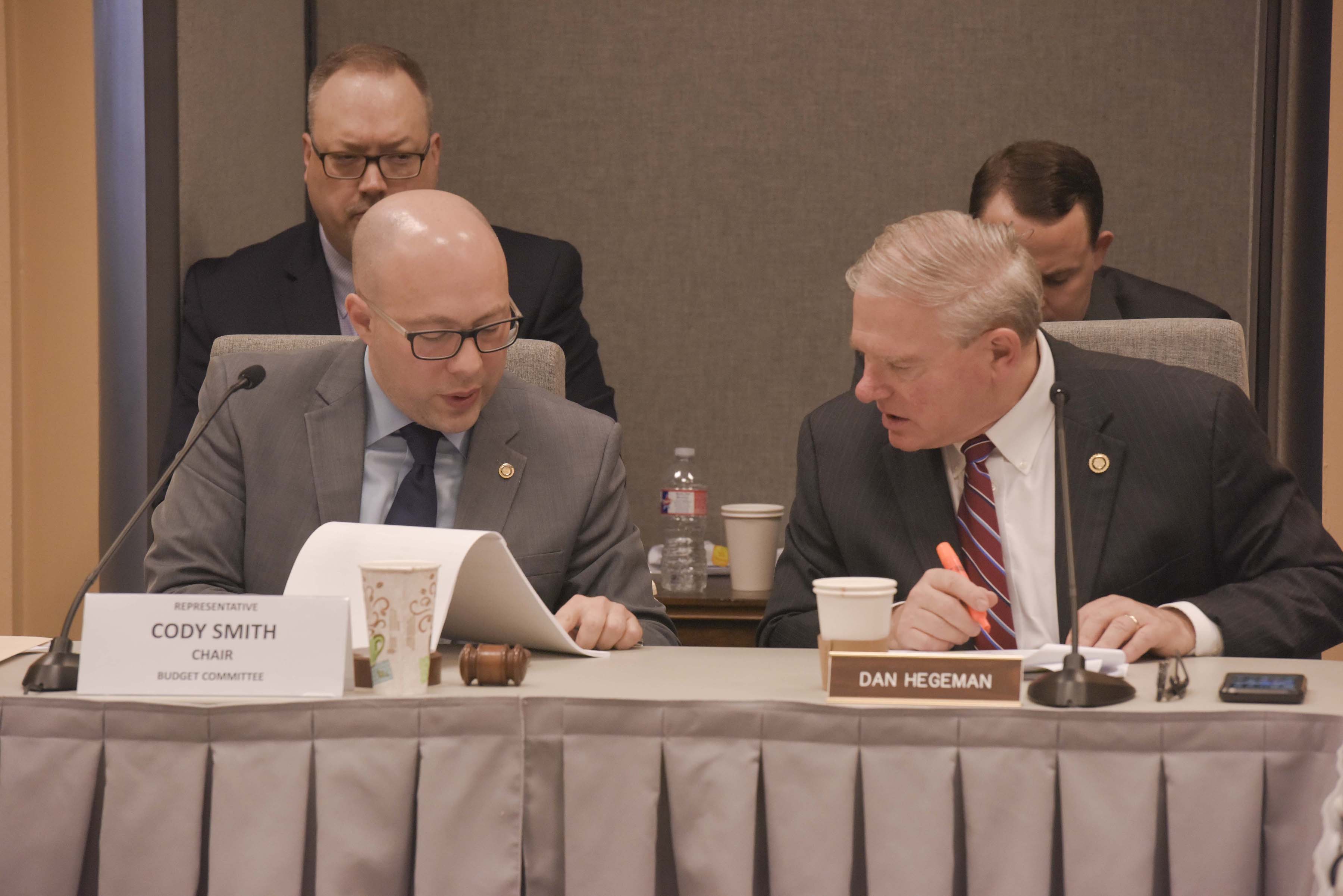JEFFERSON CITY, Mo. — All eyes are on the budget as session nears its end, with the upper chamber set to consider more than $34 billion in appropriations this week.
The measures passed out of the Senate Appropriations Committee last week with smaller changes than in recent years. A notable exclusion from both the House and the Senate committee’s versions — despite an attempt that split the upper chamber’s committee members right down the middle — is Medicaid expansion, a point of contention across the Capitol.
With the fate of the measure in flux and the process nearing its end, here’s a look at some of the biggest differences between the House and Senate versions of the budget.
Education
The Senate added more than $1 billion in funding from the House’s plan for the Department of Elementary and Secondary Education (DESE), upping the newly-formed Office of Childhood’s budget through a $3 million Medicaid home screening fund. The upper chamber’s version also included a $185 million child care services fund in response to the COVID-19 pandemic in addition to smaller programs and adjustments.
Higher education
The House earmarked $5.2 million for the Department of Higher Education and Workforce Development’s Fast-track Workforce Incentive Grant Program which the Senate upped to $6.2 million. The Senate Appropriations Committee also added a nursing simulation laboratory facility fund to expand nursing education opportunities to be funded through $2 million in general revenue.
Additionally, the Senate appropriated an additional $1 million each for several colleges, including Missouri Western State University, Harris Stowe State University, and Lincoln University. Overall, the upper chamber’s proposal upped the House version by around $70 million.
Transportation
Under the Senate’s recommended budget, the Missouri Department of Transportation (MoDOT) would receive $3.13 billion in funding for the year — $17 million more than the House’s version.
The Senate Appropriations Committee upped funding for locally matched rural and urban transit grants by $450,000 from the House’s recommended $31 million. The state’s rail program would also gain an additional $1 million under the Senate’s plan, exceeding $10.8 million total.
Medicaid
The Senate opted to fund Missouri’s Medicaid program for the full year (without expansion) while the House version amounted to 75 percent. Administrative services would receive nearly $37 million for the full year while the House’s plan would appropriate $10,000 less for the program. The Senate version also included an additional $1 million for the HealthNet Pharmacy fee-for-service and the Missouri Rx Plan.
The state waits with bated breath for the next conversation on Medicaid expansion; the House Budget Committee stripped the governor’s $1.9 billion recommendation, and its Senate counterpart voted down an attempt to attach its own version last week.
The upper chamber is taking up the budget for passage Wednesday.

Cameron Gerber studied journalism at Lincoln University. Prior to Lincoln, he earned an associate’s degree from State Fair Community College. Cameron is a native of Eldon, Missouri.
Contact Cameron at cameron@themissouritimes.com.


















